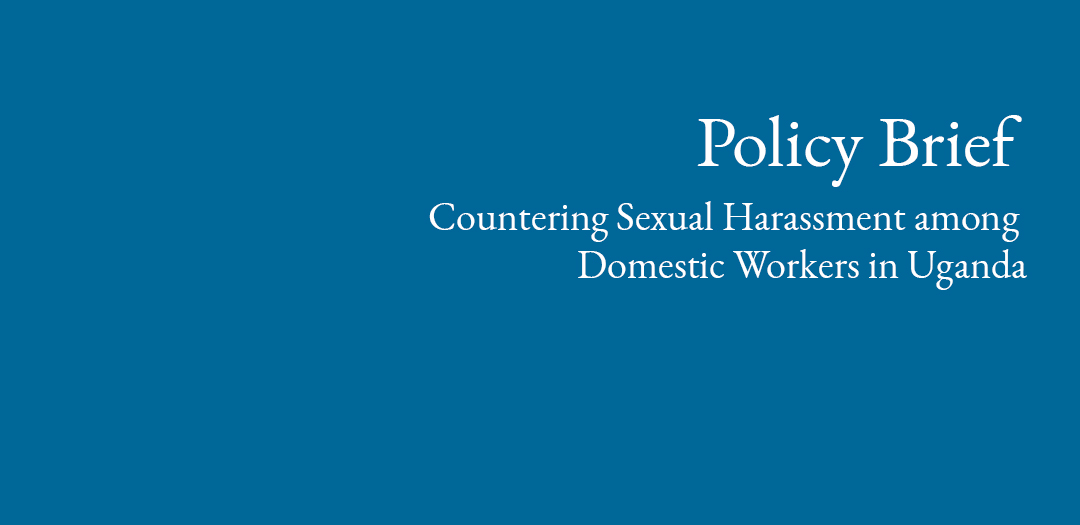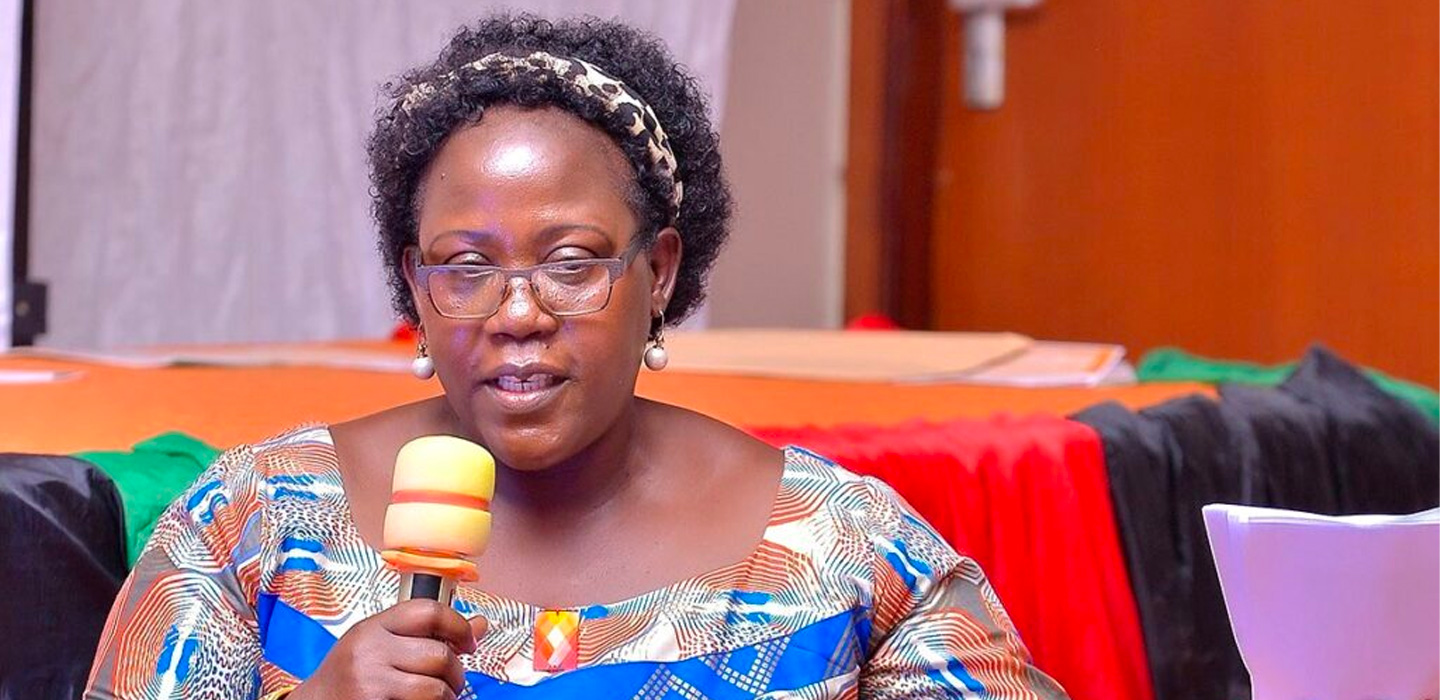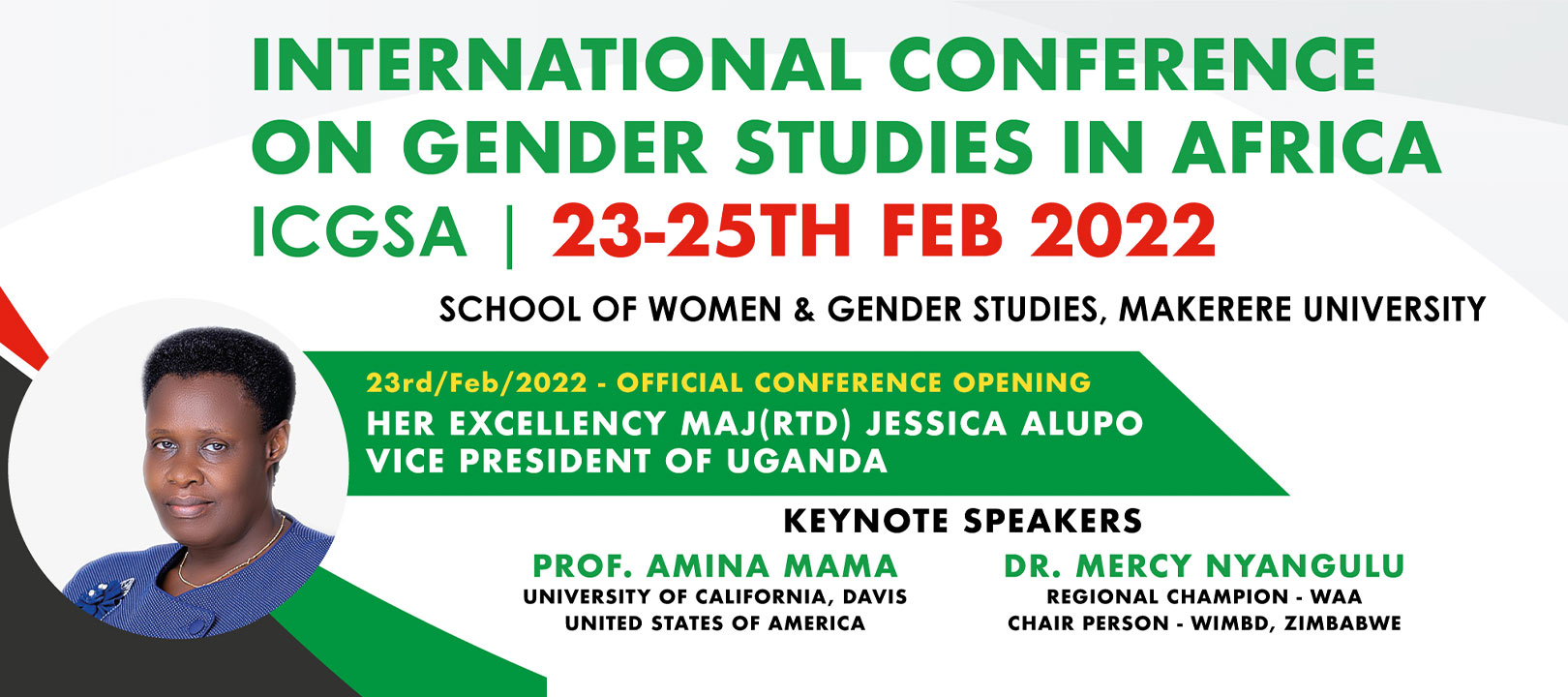Request for Proposals to Conduct a Comprehensive Situational Analysis of the Gender Terrain of Makerere University to Support the implementation of the Gender Equality Seal for Public Institutions

EXTERNAL ADVERTISEMENT
The School of Women and Gender Studies (SWGS) under the Gender Equality Project Makerere University and in partnership with the University Forum on Governance has received support from the United Nations Development Programme to pilot the Gender Equality Seal for Public Institutions. The SWGS has allocated part of the funds towards undertaking a comprehensive situational analysis of the gender terrain at Makerere University.
The SWGS therefore requests for proposals from suitably qualified candidates to conduct the comprehensive situational analysis of the gender terrain at Makerere University.
Interested candidates should submit a technical proposal and financial quote to deanswgs.chuss@mak.ac.ug addressed to;
The Dean, School of Women and Gender Studies Makerere University P.O. Box 7062 Kampala.
Closing Date: 3rd April 2023, 5. 00 pm EAT
Interested candidates should note the following;
a) Only technical proposals (with work plan) and financial quote submitted via the stated email will be considered.
b) The technical proposal should be coherent and aligned to the scope of work as presented in terms of reference.
c) The technical proposal should clearly demonstrate the ability of the consultant (team) to deliver on this assignment based on his/her qualification and experience.
d) A clear and participatory methodology should be presented.
- Introduction
TERMS OF REFERENCE
The School of Women and Gender Studies (SWGS), Makerere University is implementing the UNDP supported Gender Equality Seal (GES) for Public Institutions project. The GES for public institutions is a methodological proposal to support and acknowledge the efforts of public institutions towards achieving substantive equality between women and men within the framework of the 2030 agenda for development and the Sustainable Development Goals (SDGs). Externally, the GES for Public Institutions aims to encourage public institutions to analyse and mainstream gender into their policies, to improve their approaches and their potential impact on women’s lives, empowerment and gender equality.
Makerere’s GES proposes to accelerate gender equality and equity through (i) a comprehensive analysis of the extent of implementation of the gender equality and anti-sexual harassment policies; and (ii) a comprehensive analysis of the university’s gender terrain. Makerere will then update its gender statistics as well as identify gaps that hinder the full integration of gender equality principles and practices in the institutional architecture and culture. The identification of gender gaps will enable the university to devise strategies and actions, whose implementation will lead to both internal and external assessment of the University’s gender responsiveness.
1.1. Gender Equality Seal for Public Institutions
In order to further reinforce the accountability system for the sustainability and acceleration of gender equality agenda in public institutions, the United Nations Development Programme (UNDP) is implementing the Gender Equality Seal for Public Institutions Certification Program for the Public Sector. The Certification Programme was introduced as an initiative that recognizes good performance and gender accountability in delivering transformational gender results through establishment of standards within the public sector institutions to promote an equitable work environment for men and women. It aims to enable public institutions to track and meet gender equality goals and ensure that they address inequality and tackle institutional discrimination.
The Gender Equality Seal for Public Institutions (GES-PI) establishes minimum acceptable quality standards and provides a clear and detailed framework that can guide organizations in planning and implementing synergized actions for gender mainstreaming across organizational domains and practice areas. The Gender Equality Seal for Public Institutions addresses five critical areas including; (i) Planning and Management Framework for gender equality goals, (ii) Gender architecture and capacities, (iii) Enabling working environment (iv) Partnerships for equality and (v) Results/ Impact.
SWGS is therefore seeking for an external consultant to conduct a comprehensive situational analysis of the gender terrain of Makerere University to support the implementation of the Gender Equality Seal for Public Institutions.
- Purpose and Scope of the Assignment 2.1. Purpose
The purpose of this assignment is to conduct a comprehensive university-wide analysis of the gender terrain of Makerere University and generate baseline information that highlights the overall gender responsiveness of the University and more specifically brings out issues related to policy responsiveness to gender equality, the gender power dynamics, intersectional identities; and work environment. The assessment should identify current gaps as well as produce a strength-weaknesses-opportunities-threat context in regards to gender equality and equity.
2.2. Scope of the Assignment
a) Collect and profile sex disaggregated data and gender analytical information on;
i. the governance and management of the University;
ii. current student enrolment, leadership and welfare at the University;
iii. current staff, leadership and welfare at the University;
b) Collect and profile data and gender analytical information on inclusivity of university infrastructure;
c) Analyse current university policies and highlight existing gender gaps in line with national and international gender equity and equality principles;
d) Review statutory planning and budgeting instruments and comment on the extent of compliance to national and international gender equity and equality principles;
e) Analyse current curricula and pedagogy and comment on the extent of incorporation of gender equity and equality;- Competencies, Qualification and Experience of the Prospective Consultant. 3.1. Competences
a) Extensive knowledge of gender standards / frameworks and experience in best practices in promoting gender and women’s empowerment;
b)Demonstratedexperienceintheuseofanalyticalmethodstostructureanddefinepolicyand organizational architectural problems;
3.2. Qualification
A postgraduate degree (Masters level) in gender/women’s studies, social sciences, law, or a related field.
- Competencies, Qualification and Experience of the Prospective Consultant. 3.1. Competences
3.3. Experience
a) Minimum of 5 years of practical and relevant experience in related research and analysis on gender issues;
b)Provenknowledgeandexperienceinresearchongenderframeworksandpolicyformulation;
c) Proven background and experience at national level of research or academic experience in
the field of women’s rights and gender equality;
d) Strong interpersonal skills and proven ability to conduct and present research on sensitive
topics in cross-cultural settings;
e) Strong conceptual and analytical skills;
f) Familiarity with Makerere University’s governance, management and policy



